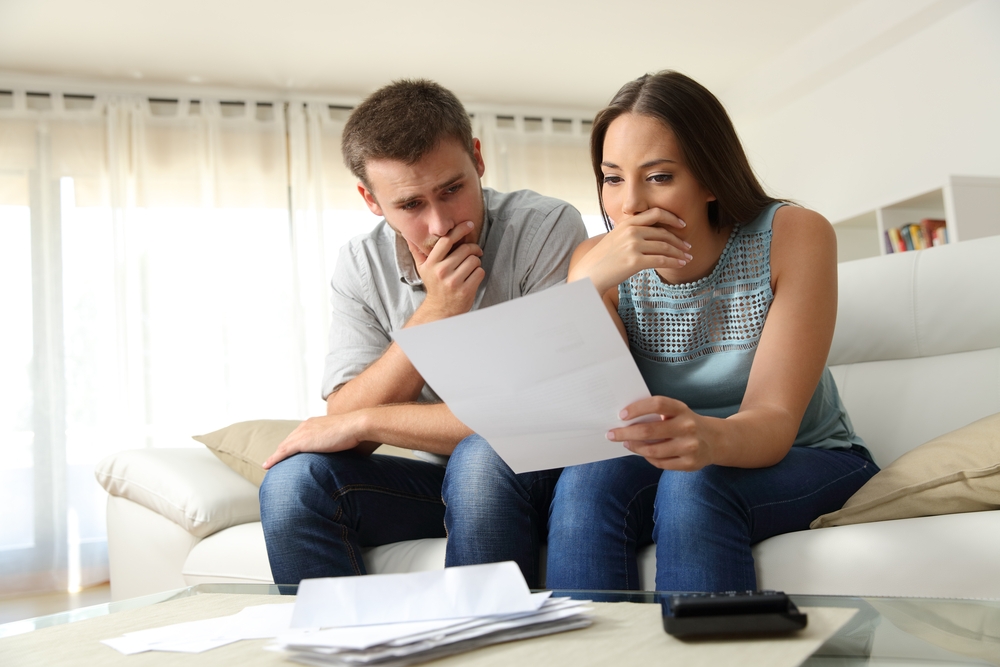
Even with numerous options available, there isn’t enough money to pay every creditor what they are owed in most bankruptcy proceedings. In many cases creditors walk away with nothing at all. Whether a debt is secured makes a bigger difference than any other factor in determining whether a creditor is able to receive payment.
Bankruptcy law divides debt into two categories: secured and unsecured debt. A secured debt is one where the creditor has a lien on a specific piece of property, meaning the right to repossess that property if the debtor does not pay. An unsecured debt is a debt where the creditor does not have any rights to the debtor’s property and can only compel payment by bringing a lawsuit.
Whether in a bankruptcy or not, secured creditors are generally in a much better position to receive what they are owed than unsecured creditors. This article will briefly explain the differences between secured and unsecured debts as they relate to bankruptcy proceedings and collection attempts. Anyone who is owed money and is struggling to collect should contact an experienced attorney who will be able to review the specifics of their situation and advise on the best collection strategy going forward.
Secured Debt Versus Unsecured Debt
As described above, a secured debt is attached to a piece of property that the creditor may repossess if the debtor does not pay what is owed. Usually, this right comes from the agreement that established the debt, such as a mortgage or car loan. The right to repossess is called a lien, and the property subject to a lien is called the collateral.
The most common form of this type of debt is a purchase money agreement, where a person borrows money to buy something, and the lender retains the right to repossess that property if the borrower fails to pay. Mortgages and car loans are both examples of purchase money secured debts.
There are also non-purchase money secured debts, where the borrower takes out a loan using something he or she already owns as collateral. These agreements can be possessory, meaning the lender holds onto the collateral until repaid, or non-possessory, meaning the borrower keeps possession of the collateral unless he or she fails to repay the debt. Pawning an object is an example of a possessory secured debt.
An unsecured debt is any debt where the creditor has no right to take possession of the debtor’s property without first filing and winning a lawsuit to collect on the debt. Common examples of unsecured debt are credit card debt, medical debt, and student loans.
Collection Options Outside of Bankruptcy
Secured creditors generally have an easier time collecting debts outside of bankruptcy. Depending on the collateral, secured creditors are usually able to repossess and sell the property without first having to file a lawsuit. Home mortgages are the main exception to this rule. Mortgage creditors must undergo the process required by the New Jersey Fair Foreclosure Act before foreclosing on a home.
Regardless of the form of the collateral, the law limits the ways a secured creditor may repossess property. In general, it is illegal to use violence, breach the peace, or enter a debtor’s home to repossess collateral. Before making any attempt to repossess property, it’s wise to contact a lawyer to determine what methods of repossession are allowed by the law.
By contrast, unsecured creditors who cannot collect from a debtor must resort to a lawsuit. Once the court has ruled in their favor, they must either file a writ of attachment with a county sheriff to seize and sell the debtor’s property, or file a writ of garnishment with the debtor’s employer to garnish a portion of the debtor’s wages.
Both garnishment and levies of property are cumbersome and difficult collection processes. Some property is exempt from being levied and sold to satisfy a debt, and New Jersey law caps the percentage of a debtor’s wages that can be garnished. Thus, for practical reasons, secured creditors have an easier and more reliable way to collect even when the debtor hasn’t filed for bankruptcy.
These practical realities mean that it’s sometimes a good idea for unsecured creditors to agree to a deal with the debtor instead of pursuing a lawsuit. In the case of unsecured creditors, it’s often impossible to collect the full amount owed if the debtor truly doesn’t have the money to pay. An attorney can examine the leverage available to an unsecured creditor and determine whether the creditor is better off negotiating a settlement or attempting to collect via the legal process.
Similar considerations also apply to home mortgage creditors. Although a mortgage is technically secured debt, the law imposes many obstacles on those attempting to foreclose. All home foreclosures require 30 days of notice and must go through the courts. Additionally, the homeowner has a right to mediation before the foreclosure. Depending on various factors, it may be more expensive to foreclose than to make a deal with the homeowner.
Secured and Unsecured Debts in Bankruptcy
Secured creditors also fare better than unsecured creditors when the debtor files for bankruptcy. Although the automatic stay applies to prevent repossession of the collateral during the bankruptcy proceeding, section 506 of the bankruptcy code entitles secured creditors to the value of their debt as long as the collateral is worth more than the debt.
Another advantage secured creditors have is that their claims are not subject to the bankruptcy exemptions. In a chapter 7 bankruptcy, the debtor’s assets are sold and the proceeds are used to pay the creditors. However, certain property is exempt from being sold. This reduces the amount available to creditors; sometimes, a debtor doesn’t have any non-exempt property at all.
Debtors must choose between federal and state exemptions. Currently, the New Jersey exemptions are very low, which causes most debtors to select the federal exemptions. The federal exemptions include up to $25,150 in equity in a home, $4,000 in equity in a motor vehicle, $13,400 in household goods, and various other exemptions.
However, the New Jersey Senate recently passed a bill that would allow debtors to exempt up to $340,000 in home equity, $15,000 in personal property (including motor vehicles), and all ordinary household goods and clothes regardless of dollar value. If the bill passes the Assembly and is signed into law, creditors will face lower recoveries in bankruptcy.
A secured creditor is entitled to payment even if the property that secures the loan is exempt. Exemptions protect debtors from involuntary liens attached by courts, not voluntary liens they accept as part of a credit agreement. For example, if a debtor has $4,000 of equity in a car but still owes $5,000 of the purchase money to a lender, the lender is still entitled to the full $5,000 even with the $4,000 federal motor vehicle exemption. The lender would still be able to repossess the car after the end of the automatic stay unless the debtor agreed to reaffirm the debt and pay off the remaining $5,000.
There is one major exception to the favorable treatment secured creditors receive in bankruptcy. Section 522(f) of the bankruptcy code subjects non-possessory, non-purchase money secured debts to bankruptcy exemptions. For example, if a borrower pledged his car as collateral for a loan that he did not use to buy the car, he would still be able to claim up to $4,000 of the car’s value as an exemption.
As long as the collateral is worth at least as much as the debt, a secured creditor is entitled to full payment. Any amount of debt over the value of the collateral is considered unsecured. A secured creditor may either have the collateral sold as part of the bankruptcy and receive payment that way, or establish a reaffirmation agreement with the debtor. Under a reaffirmation agreement the debtor agrees to keep the debt and continue making payments after bankruptcy.
Unsecured creditors, by contrast, often receive less than what they are owed or receive nothing at all when their debt is discharged through bankruptcy. If there are no assets to sell in a chapter 7 case, an unsecured creditor will receive nothing from the bankruptcy proceeding.
If there are assets to sell after accounting for secured creditors and exemptions, the proceeds will be divided among the unsecured creditors. Usually, bankrupt debtors don’t have enough money to pay all their debts, so an unsecured creditor will only receive full payment if they have priority over other unsecured creditors. Some debts, such as child support or unpaid wages are entitled to priority payment before other unsecured debts.
 What Should I Do if Someone Owes Me Money?
What Should I Do if Someone Owes Me Money?
If you are owed money but have difficulty collecting, contact Rosenblum Law for a free consultation. We have experience representing both creditors and debtors, so we know the ins and outs of both collections and bankruptcy law. We’ll help you determine your options and make sure you’re able to receive as much of what you are owed as possible. Call 888-815-3649 or email us today.


